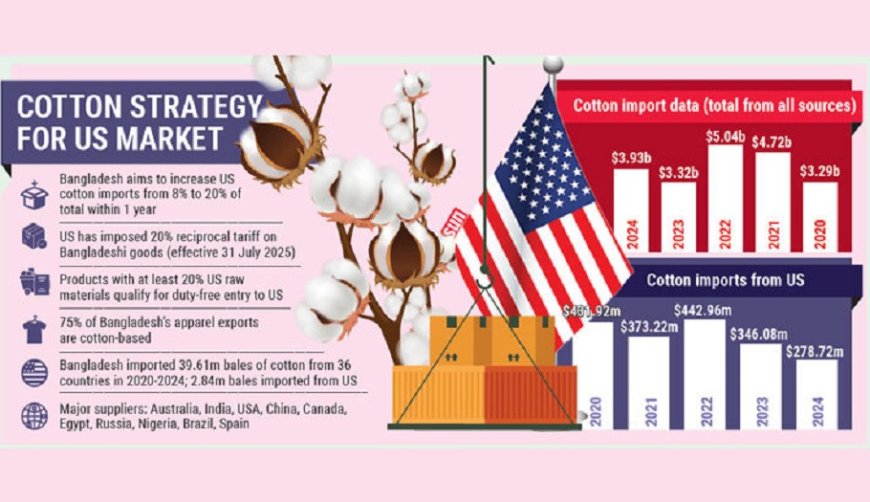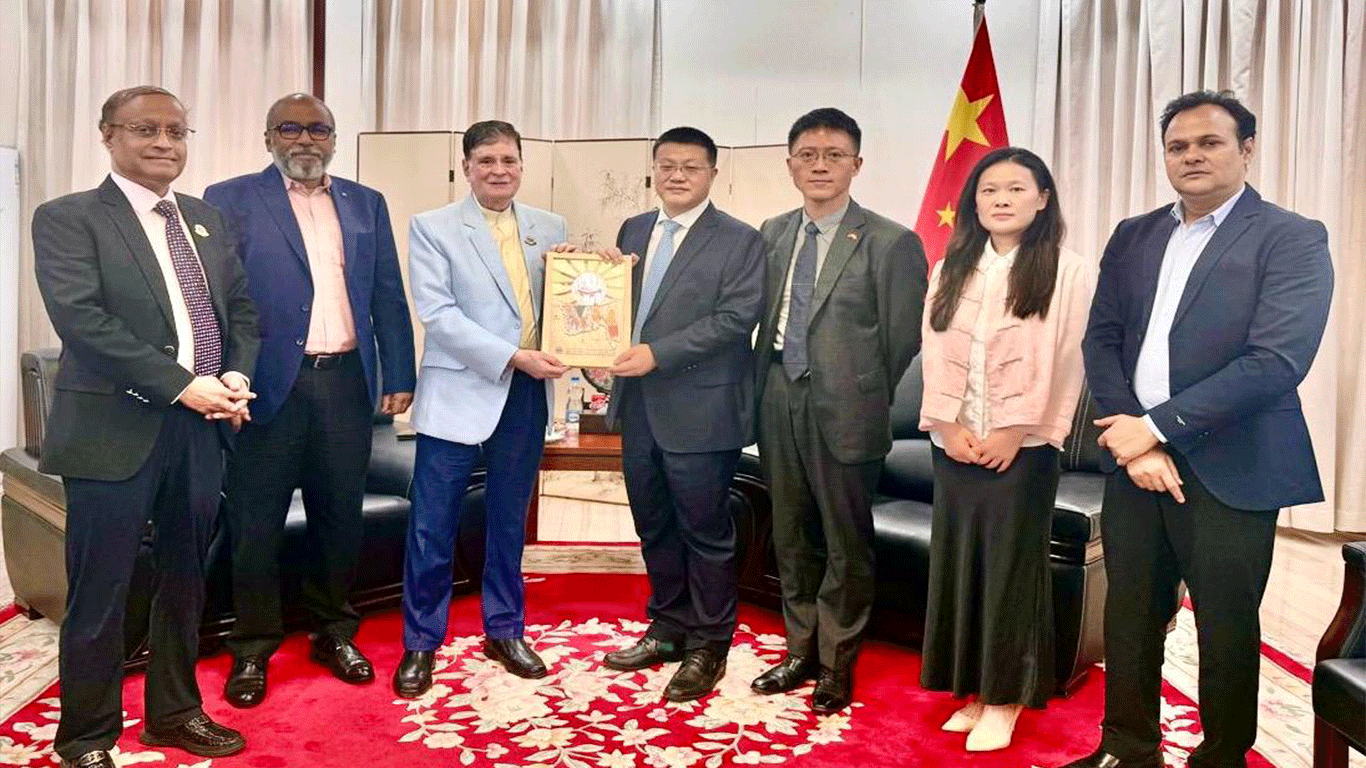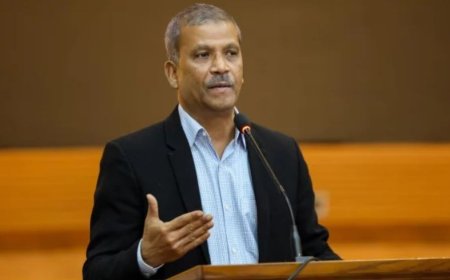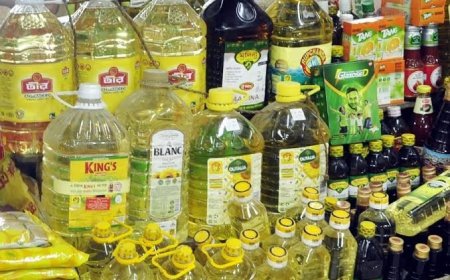Bangladesh set to double US cotton imports to secure duty-free market access
Products containing a minimum of 20% U.S.-sourced raw materials will be eligible for duty-free access.

Bangladesh Plans to Double U.S. Cotton Imports to Secure Duty-Free Access for Apparel
Bangladesh’s textile sector is preparing to double its imports of American cotton within the next year in a bid to secure duty-free access for garments in the U.S. market and bolster trade relations between the two countries.
The initiative comes in response to a move by the Trump administration on July 31, which imposed a 20% reciprocal tariff on Bangladeshi products, effective from August 7. However, under the new trade policy, goods incorporating at least 20% U.S.-origin raw materials will be eligible for duty-free entry into the United States.
Industry stakeholders say that despite the higher cost, the superior quality of American cotton makes it a viable option that won’t undermine the global competitiveness of Bangladesh’s ready-made garment (RMG) exports.
A White House announcement noted that the revised tariff applies to goods "entered for consumption, or withdrawn from warehouse for consumption, on or after 12:01 a.m. Eastern Daylight Time, seven days after the executive order is signed, excluding the date of signing."
Between 2020 and 2024, Bangladesh imported 39.61 million bales of cotton worth $20.3 billion from 36 countries, including the U.S., Australia, India, Brazil, China, and several African nations. Of this total, the U.S. supplied 2.84 million bales valued at $1.87 billion.
From January to May 2025, U.S. apparel imports rose by 7.06% year-on-year to $31.7 billion. Imports from Bangladesh saw even stronger growth, rising 21.6% to $3.53 billion.
Industry Seeks Policy Support and Infrastructure
Bangladesh Textile Mills Association (BTMA) President Showkat Aziz Russell told Daily Sun that U.S. cotton currently makes up about 8% of Bangladesh’s total cotton imports, but this figure is expected to increase to 20% within a fiscal year.
He urged the government to step in with policy support—specifically, the creation of a dedicated bonded warehouse of at least 500,000 square feet to store U.S. cotton and cut the 90-day lead time for shipments from the U.S.
“U.S. cotton costs more than cotton from other sources, but its superior quality ensures export prices remain competitive,” said Russell, who also serves as chairman and managing director of Amber Group.
He recommended reducing the interest rate on Export Development Fund (EDF) loans to 2% for U.S. cotton imports, providing a cash incentive of 3–4 cents per pound, and exempting exporters from the 1% Advance Income Tax on earnings.
Quality Justifies Higher Prices
Although U.S. cotton costs 9–12 cents more per pound than Indian cotton, 6–8 cents more than African, 12 cents more than Brazilian, and 5–7 cents more than Australian cotton, it offers lower waste rates—only 5–10% compared to 15% for Indian and 12% for African cotton—making it more cost-effective in the long term.
Cotton-based products make up about 75% of Bangladesh’s apparel exports.
Shovon Islam, managing director of Sparrow Group and former director of the Bangladesh Garment Manufacturers and Exporters Association (BGMEA), said his company exports $1.5 million worth of shirts, trousers, women’s tops, and jackets to the U.S. annually.
“American cotton enhances product quality. Though costs are higher, buyers are willing to pay more for better quality,” he noted. Islam added that his company plans to use U.S. cotton exclusively for garments bound for the U.S. market in order to maximize duty-free benefits.
What's Your Reaction?





















































































